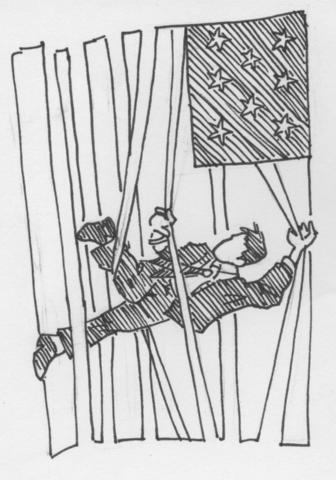
“My life is full because I know I am loved.” As the final line of a movie, this could be pretty bad. Anyone could easily brush it off as a vapid romantic statement passed melodramatically from a hunky gentleman to a beautiful woman. But when “The Elephant Man” confidently and happily says it in the midst of dying, it is far from overly sentimental or vapid.
David Lynch’s masterpiece “The Elephant Man” is an artist’s telling of the real-life story of Joseph (called John) Merrick. Merrick suffered from a congenital condition that severely deformed his body: hence his freak-show name “The Elephant Man.” The movie, while not completely true to the original story, follows Merrick through his London Whitechapel Hospital stay and his relationship with physician Frederick Treves.
This movie, while a little dated, and perhaps cliché: how many movies have been made about a special, though disabled, individual re-evaluating what it means to be human?: is ultimately remarkable in many respects. Lynch’s choice of black-and-white filming, much like his cult classic “Eraserhead,” is beautiful, dark and surreal. The music and sounds stir up the workhouse age of the late 19th century, with the groans of steam engines combined with soft Danny Elfman-style violin music and frightful sounds of elephant trumpeting in the more surreal moments.
John Hurt, who plays the title character, is unrecognizable in his prostheses. His horrifying, pitiable frame and face is juxtaposed with a soft, gentle voice and demeanor. Hurt, while unable to contort his face to express emotions, uses his soft voice and hesitant demeanor to portray Merrick’s personality. While simple, his reactions to the world definitely water the eyes, whether he is closing his eyes in nervousness or fear or blinking in wonder.
While there are some definite bad guys, such as Merrick’s abusive freakshow owner Bytes: played by the amazing Freddie Jones: and a night porter who uses Merrick. The “good guys” of the story, while well-meaning, often treat Merrick simply as a more sophisticated freak rather than a human being. Anthony Hopkins, who plays Dr. Treves, is fantastic as the ambitious yet kindly doctor who cares for Merrick despite his questionable motives.
Although I think many people would find it either too artistic, too sentimental or both, the movie is a classic worth watching. It is a lovely testament to Merrick’s amazing story, and while it is not a heavy mental engagement, it will get your heart and tear ducts working. Merrick’s story, while not heroic, is human, heartfelt, and worthy of attention.


